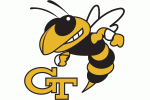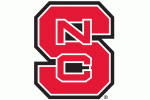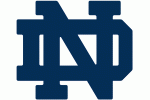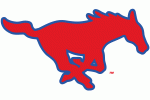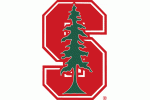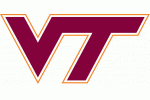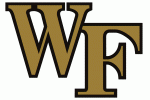Friday's announcement that UNC has finally received a notice of allegations from the NCAA means we are one step closer to bringing some resolution to the sword of Damocles that has hung over the Carolina athletics program for nearly four years now. While the receipt of the NOA is merely the first step in a long process, it does mean that the wheels are finally in motion for bringing some sort of closure to The Great Unpleasantness. Moreover, it means that within the next week we will finally get a glimpse as to how the NCAA interprets the AFAM scandal.
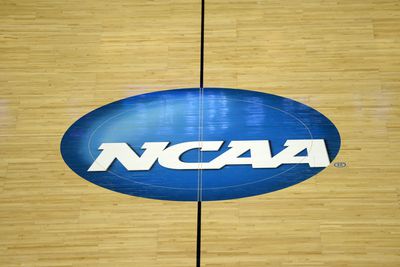 Inside Carolina ran a great two-part look this past week into how the NCAA would likely move forward with UNC that is well worth your time to read. In the first part, the NCAA process was laid out, which is clearer now that the NOA has been received. The second part defines how the NCAA may choose to interpret the events at UNC and the challenges that presents. The key of course is whether the NCAA looks at the scandal as an institutional issue or an athletics issue, and whether they view it as academic irregularity or impermissible benefits.
Inside Carolina ran a great two-part look this past week into how the NCAA would likely move forward with UNC that is well worth your time to read. In the first part, the NCAA process was laid out, which is clearer now that the NOA has been received. The second part defines how the NCAA may choose to interpret the events at UNC and the challenges that presents. The key of course is whether the NCAA looks at the scandal as an institutional issue or an athletics issue, and whether they view it as academic irregularity or impermissible benefits.
There is no doubt that the AFAM paper classes helped some student-athletes at UNC stay eligible, although it's funny that with potentially thousands of athletes involved, not a single one has come forward to say "I would have been ineligible but for my enrollment in a paper class." Even Rashad McCants' infamous enrollment in four paper classes in the spring of his junior year ultimately had no impact on his eligibility. But what the NOA will reveal about the NCAA's view of the scandal is what neither Kenneth Wainstein nor Jim Martin nor any of the other seven inquiries have successfully answered to my satisfaction: which came first, the chicken or the egg? Was this, as most of the media maintains, an "eligibility scheme" to keep athletes eligible that grew so large as to encompass more non-athletes that athletes, or was it a scheme to help struggling students that became a haven for athletes to get an easy grade?
When Governor Martin, who was an academic by training, declared the mess to be primarily an academic scandal, his findings were roundly criticized and dismissed. When Wainstein, who was not an academic, declared it to be at athletic scandal, he offered little in the way of concrete evidence, providing mostly circumstantial and anecdotal interpretations despite having more access to the key players in the scandal than anyone other than District Attorney Jim Woodall. In other words, the lack of definitive evidence either way has been part of the reason closure has been so hard to discern.
There have always been three inconvenient facts for the "eligibility scheme" crowd: First, there was never any credit received without some work being done. In fact the Wainstein documents show numerous references to needing to turn in the paper in order to receive credit. That makes it difficult to play it as straight-up academic fraud, regardless of how much scrutiny the papers received. Second, there is the little matter of 53% of the enrollments being non-athletes. No matter how much you try to minimize that (as Luke DeCock ridiculously tried on Friday, claiming that "a non-athlete or two found his or her way into a paper class now and then"), the fact remains that if it was meant as an eligibility scheme there were still more non-athletes that received the benefit. And third, it is clear that not every athlete enrolled in a paper class did so for eligibility purposes. The Wainstein documents included communications about a women's soccer player who needed credit without having to worry about class attendance. And the primary plaintiffs in the suit against UNC over the paper classes - Devon Ramsay and Rashanda McCants, took three paper classes between them. Not exactly an indictment of the system.
On the other hand, there is no denying the system was used to protect student athletes. Again the Wainstein documents show requests to enroll particular athletes and to receive specific grades. That is clearly unethical and against NCAA rules. But was the system designed for that purpose, or was that just a consequence of the paper class scheme? Again, none of the inquires have answered that question definitively. And frankly it is naive to think that, had the irregular classes not existed, that another easy class would not have been substituted for them.
The other issue that is crucial to how the NCAA may view this scandal is exactly who on the athletic side of the house knew the classes were not being administered or supervised properly? Again, knowing the classes were easy and knowing Debby Crowder facilitated enrollment does not exactly equate to knowing she was assigning grades or forging signatures of staff members. Sylvia Hatchell famously thought Crowder was a professor, yet disgraced faculty member and women's basketball academic adviser Jan Boxill surely knew Crowder was behind the curtain. And if Boxill knew, then it would stand that Mary Willingham knew, given that they were great buddies. (What, you didn't know Boxill and Willingham were BFFs? And that the Wainstein documents showed that Boxill wanted Wayne Walden's job with the men's team when he left, and that Boxill recommended Willingham to replace her with the women if Boxill moved on? If you were counting on Dan Kane, Sara Ganim, or Paul Barrett to connect the dots between Boxill and Willingham, you're still waiting) Surely the NCAA's findings will rely heavily on what Willingham told them...oh, that's right, she refused to meet with them, especially since her benefactor Michael Hausfeld is suing the NCAA. But Walden did talk to investigators, for what it is worth.
Don't mistake any of this as rationalizing or excusing what happened. It is an embarrassment to the University, its alumni, students, and faculty, and to its athletic program. It was wrong and it short-changed potentially thousands of students, both athletes and non-athletes. There were many students who abused this system and who unfairly benefited from it. There were also likely many students who completed the assignment as directed, did so without plagiarism, and expected it would be graded competently. Even Michael McAdoo, whose plagiarism was the tugged thread that helped unravel this whole thing, was actually trying to complete the given assignment.
Yet, in spite of this gross breach of academic integrity, all this may not fit neatly into a category of NCAA violation. The notice of allegations is the equivalent of an indictment; we will soon know exactly what rules the NCAA is charging UNC with violating. Lack of institutional control is a given, even if it doesn't fit the traditional definition. It is the most serious charge that can be leveled and there is no way that club stays in the bag. But beyond that, who knows. The NCAA has already been setting the table (spurred on by pending litigation) that it cannot monitor the quality of courses at an institution. So all that leaves is academic fraud and improper benefits, meaning once again, it comes down to the chicken or the egg argument. And this time around, the NCAA's opinion of chicken or egg is the only one that matters.







